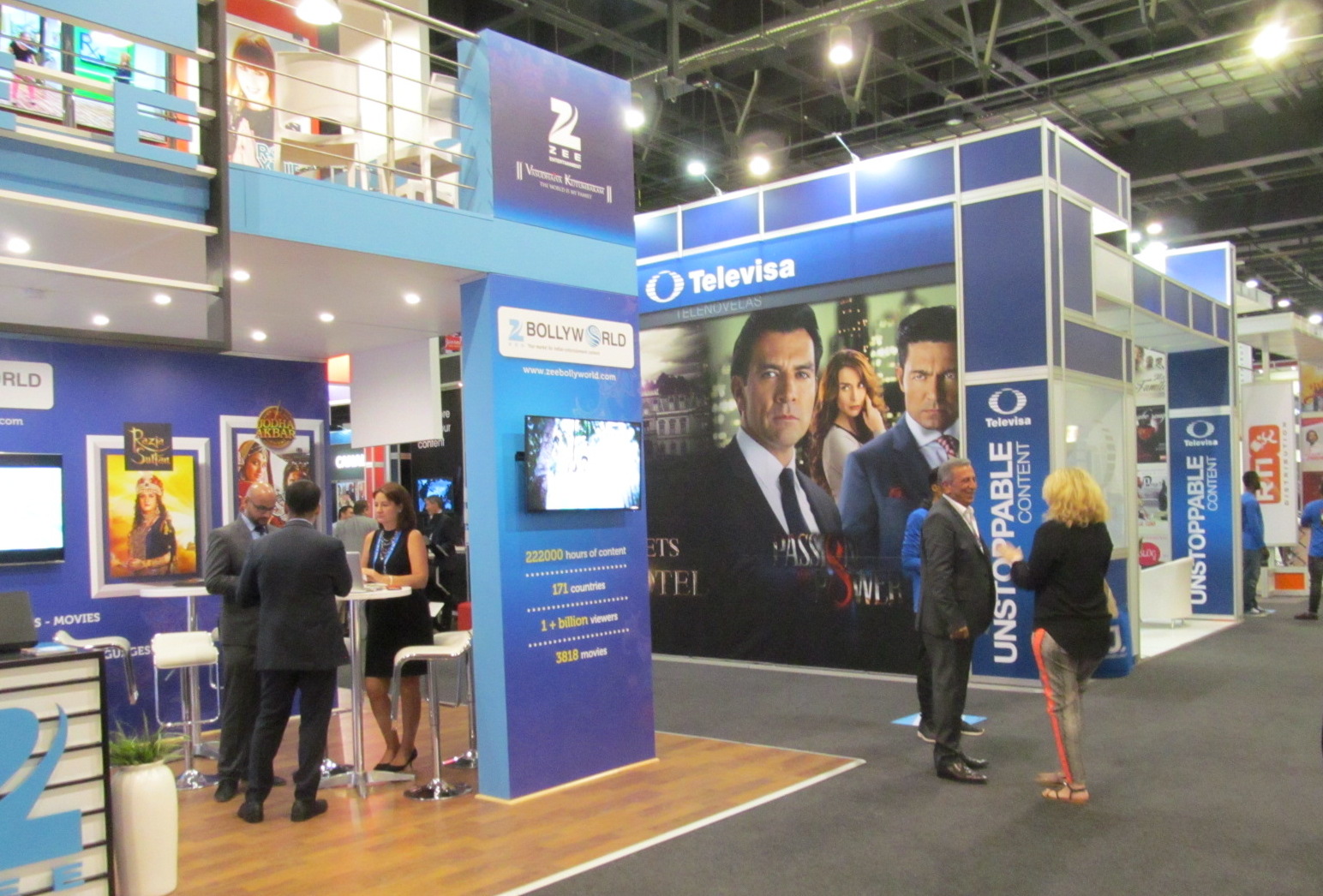First the news: Next year’s Discop Africa will take place from October 25-27 in order to not to conflict with the American Film Market anymore. For the past two years the Johannesburg event took place simultaneously with the Santa Monica, California, event, which this year started on November 2.
Now for this year’s edition: Discop Africa opened its doors at the Sandton Convention Center, which is housed in a prestigious complex adjacent to Nelson Mandela Square. This year’s event (which runs through November 4) registered over 2,000 participants and 140 exhibiting companies with stands, a 15 percent increase from last year’s figures.
Notable were some large stands set up by companies like Mexico’s Televisa, NBCUniversal (which also included Telemundo), and India’s Zee Entertainment, in addition to African companies, like SABC, Kenya Film Commission, RTI, Cote d’Ivoire Audiovisual and Digital Lab Africa. Pavilions that grouped distributors from the same country were: TV France International, the South African Pavilion, the American Umbrella, as well as a large China Pavilion. Also, the exhibition area accommodated meeting tables and a matchmaking lounge.
All exhibitors contacted by VideoAge were satisfied with the growth of Discop Africa and plan to be back next year, taking advantage of a market that allows them to stay in touch with buyers that are traditionally difficult to reach, even just for follow-ups.
On the other end, some distributors who have been coming to the event for years, like Comarex’s Adela Velasco and Discovery Learning’s Bruce Rabinowitz, feel that now the market is a bit “crowded” due to the presence of larger distribution companies, such as CBSSI, NBCUni, Viacom, Paramount, Turner, and also large Asian operators, such as China’s Star Times. Other Asian companies in attendance included NHK, GMA and ABS-CBN from the Philippines. ABS-CBN’s head of sales, Laarni J. Yu, stressed the fact that Filipino content appeals to African audiences for the common family and Christian religious values they share.
The schedule of seminars, workshops and pitching sessions — all held on the third floor of the convention center — was also busy and varied. The Digital Lab Program held sessions on digital music, virtual reality, videogames, and web creation on the first day, while seminars spanned topics from filming in South Africa and adapting scripted formats to African animation and funding for African writers. A plus of this market was also the presence of producers, directors and talent: daily “meet your stars” sessions were held to introduce cast members of feature films and series.
As for exhibitors’ comments, VideoAge recorded these on the floor: Cristobal Ponte of Cisneros is offering 5,500 hours of series dubbed (Cisneros also has a linear telenovela channel Romanza, currently available in many African territories). Mario Castro of Televisa specified that their novelas are dubbed in English, French and Portuguese, and this market is particularly important for them (Televisa is exhibiting with a very large stand) because of the increasing competition among telenovela distributors. Kanal D’s Kerim Emrah Turna, who has been coming to Discop Africa for the past four years, and is offering his long-running Turkish series completely dubbed in English and French.
Generally, in Africa Free TV is the main market, while in Southeast Asia digital rights prevail, but Cisneros’ Ponte commented, “In 2015 all African countries have switched to digital [now they are transitioning, the complete switchover will happen in a couple of years but in the meanwhile digital channels are proliferating], but to Africa, distributors are selling primarily pay-TV rights and then Free TV.” However, they have to sell all different types of rights to compensate for the low license fees that Africa can pay. That said, Azteca’s Berta Orozco and Kanal D’s Turna, for instance, feel that the proliferation of platforms in this area has somewhat counterbalanced these reduced prices.


Leave A Comment